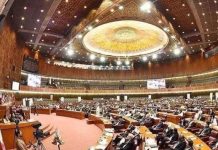ISLAMABAD: /DNA/ – Former President of the Islamabad Chamber of Commerce and Industry (ICCI), Dr. Shahid Rasheed Butt, said on Sunday that the business community applauds the government’s decision to revise the agreements with IPPs.
He said that affordable power is necessary to provide relief to the masses and help restore distressed businesses.
He added that the high cost of electricity is impacting individuals, production, and exports while the government is losing revenue.
Shahid Rasheed Butt said in a statement issued here today that authorities should make serious efforts to resolve the matter of IPPs as soon as possible so that the public can get some relief and business activities can be restored.
The business leader said it has become imperative to lower the rising electricity prices that have plagued the entire country.
Rising electricity rates have created serious social problems in the country. Production has decreased by billions of dollars, and millions of people have become unemployed.
He said the closure of businesses has also significantly reduced the government’s revenue, adding that the current electricity pricing system is unsustainable and that it has become impossible to maintain the current situation for long.
He said that the owners of IPPs have also realized that the growing public unrest is worrisome, and the sooner the situation is resolved, the better.
He informed that some IPP owners have quietly sold their businesses, anticipating the difficulties and public backlash.
Shahid Rashid Butt said that IPPs have been given a free hand since the nineties; they have been getting incredible profits in dollars while billions of rupees are being paid to power plants that are not producing electricity.
These issues have been going on for a long time, but now that the economy is not able to pay for these power plants, therefore the whole country is protesting, he said.
Due to the price of electricity and the economic crisis, electricity consumption is continuously decreasing, and additional electricity is being generated and paid for which is putting additional burden on the country’s finances, he observed.
At present, the government is trying to reduce the guaranteed profit of private power plants, cap the dollar rate, and prevent the payment for unused electricity, which is a welcome move, he said.
The IMF is also aware of the criticality of the situation, so it has emphasized the need to consider electricity contracts. Electricity prices are no longer regionally competitive, which is also hurting exports.
The purchasing power of the people in Pakistan is much less than that of America, but this electricity is being provided at twice the price of America.
He said that the government is trying to provide relief to the people while the National Electric Power Regulatory Authority (Nepra) has made electricity more costly.
Nepra has allowed Rs1.743 per unit increase in electricity rates across the country for three months to provide Rs43.23 billion in funds to power distribution companies.
It has determined an adjustment of Rs43230 million on account of variation in capacity charges, variable O&M, additional recovery on incremental sales, use of system charges, market operator fee, and FCA impact on transmission and distribution losses for the 4th quarter of FY2023-24.

















